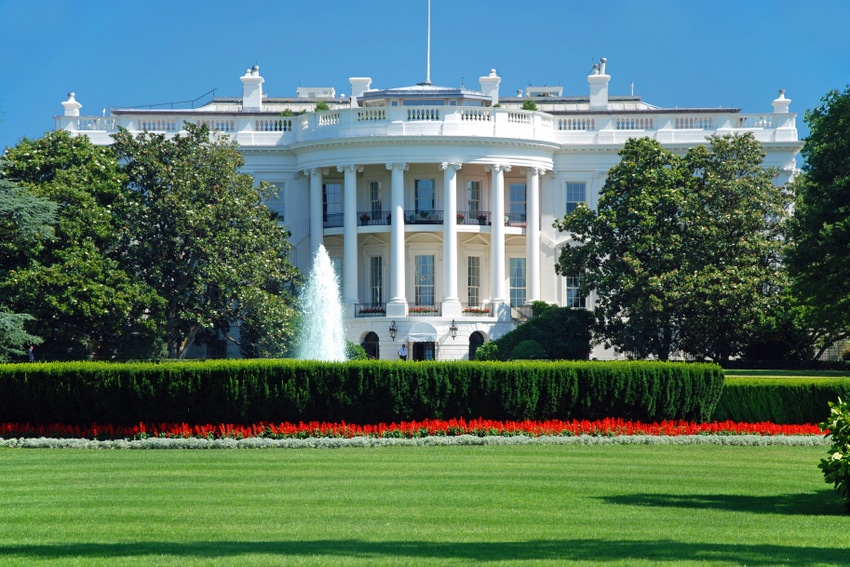
The Biden administration submitted to Congress on Friday the President’s priorities for fiscal year 2022 discretionary spending including $27.8 billion for USDA, a $3.8 billion, or 16% increase from the 2021 enacted level.
In a statement, USDA says the funding request advances key agency priorities, including economic development and growth in rural America, maintaining support for American agriculture, rebuilding scientific expertise in our agencies, aiding in an all-of-government approach to mitigate and adapt to climate change, and supporting a strong safety net to address hunger and nutrition insecurity.
“The President’s budget provides the resources to build back better, stronger, and more resilient and equitably than ever before,” says Agriculture Secretary Tom Vilsack. “This is our moment to solve big challenges by acting boldly—to close the broadband gap facing rural America; to work with farmers, ranchers and producers to transform our nation’s food system and build new markets here and abroad; to protect and manage our nation’s forests and grasslands from catastrophic wildfires; and to ensure Americans have access to healthy and nutritious food. The President’s budget commits to building back better and USDA is at heart of that historic commitment.”
Specifically, the request calls for additional funds to expand broadband access. USDA notes that rural Americans are 10 times more likely than their urban residents to lack access to quality broadband.
The discretionary request provides an increase of $65 million for broadband access over the 2021 enacted level for the Rural e-Connectivity Program “Reconnect,” which provides grants and loans to deploy broadband to unserved areas. The benefits of high-speed internet will serve as an economic equalizer for rural America and the work of installing broadband will create high-paying union jobs with benefits in rural communities, USDA says.
The discretionary request provides $4 billion, or nearly $680 million above the 2021 enacted level, for USDA’s research, education and outreach programs. These investments in agricultural research will advance innovation and the application of science-based and data driven agricultural decisions and practices.
In addition, the discretionary request provides an increase of $161 million above the 2021 enacted level, to support a multi-agency initiative to integrate science-based tools into conservation planning in order to measure, monitor, report, and verify carbon sequestration, greenhouse gas reduction, wildlife stewardship, and other environmental services at the farm level and on federal lands.
Discretionary spending increases detailed
The entire discretionary request proposed by the president includes major new climate change investments — an increase of more than $14 billion compared to 2021 — across nearly every agency to: restore the critical capacity needed to carry out their core functions and to take a whole-of-government approach to tackling climate change; secure environmental justice for communities that have been left behind through the largest direct investment in environmental justice in history; and help developing countries reduce emissions and adapt to climate change.
The budget also addresses the growing threat from wildfires. “Climate change is increasing the severity and frequency of wildfire seasons, transforming our nation’s forests at an unprecedented rate, and destroying homes and businesses.,” USDA says.
The discretionary request provides nearly $1.7 billion for high-priority hazardous fuels and forest resilience projects at a scope and scale to meet the challenge we face, an increase of $476 million over the 2021 enacted level. This funding supports the Administration’s science-based approach to vegetation management at the Forest Service and the Department of the Interior to protect watersheds, wildlife habitat and the wildland-urban interface.
The 2022 discretionary request provides $6.7 billion, more than $1 billion above the 2021 enacted level, for critical nutrition programs, including the Special Supplemental Nutrition Program for Women, Infants, and Children (WIC), to help vulnerable families put healthy food on the table and address racial disparities in maternal and child health outcomes. These funding levels will support an anticipated increase in participation in WIC and combat rising food insecurity, which has disproportionately harmed families of color.
In recent media appearances, Vilsack has commonly discussed how only 50% of those eligible for WIC sign up for the program.
“This is an amazing program that provides nutritional opportunities and options for young moms and dads and their children,” Vilsack said of WIC during a National Press Club event hosted on March 26. “And the reality is that far too few of us who are qualified for the program take advantage of it.”
Vilsack added, “The resources under the American Rescue Plan are now going to provide us the opportunity to expand outreach, to make sure that we sign up the 50% of the people who are eligible for this program that are currently aren't using it. And we've also increased the benefit.”
About the Author(s)
You May Also Like






